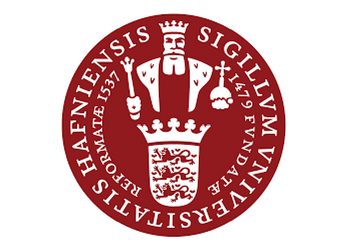

University of Copenhagen - KU Speciality : Communication
programme: Media, Film and Television
1 Student Reviews
Filter reviews-
Media, Film ...21 Feb, 2022
 Student⚠️ Non-EU Citizens, Beware ⚠️
Student⚠️ Non-EU Citizens, Beware ⚠️Don’t waste your money on this university’s MA degrees.
MA degrees are quite useless for job-hunting in Denmark as well, and it doesn’t help that this university’s — or perhaps it’s the country in general — the academic system is built to (a) subject your grades to randomness, i.e. hard work and logical argumentation don’t guarantee getting good grades; (b) protect errant university staff over students, with the appeal procedure being an utter sham; (c) cut ever more corners, with MA students having no thesis defence; and (d) treat non-EU students as cash cows to subsidise the university’s rent, plus probably a myriad of other costs.
What follows is a somewhat high-level elaboration of the above points.
a. If you are used to the Anglo-American style of university, which is basically most of the Westernised world in this era, you would be surprised to learn that the Danish grading system — as implemented by this university — allows for multiple unpredictable variables that can unjustly lower your grades beyond belief. For example, there is always an external examiner involved in grading (together with the course instructor in question), but the Danish Examination Order grants the external examiner more power than the course instructor; this means that someone who wasn’t following the process of the assignment/exam closely has more influence over the final grade than the course instructor. The official justification for this arrangement is that the grading would be fairer, but in my experience, it does the opposite: the grading is inherently unfairer this way. Even in academia, a piece of writing has to be targeted at the person who will be reading it; and because you don’t usually know the identity of the external examiner until much later (e.g. 2–4 weeks before submission), it is difficult to prepare your assignment or exam in a way that would align with the preferences of the course instructor AND the external examiner.
For non-EU citizens who mostly live and die by their grades (if the goal is to successfully enter huge international companies after higher education), this unfair grading system can really screw up your job prospects and livelihood in Denmark because you don’t benefit from the Danish welfare state as much as the EU/EEA citizens do. European students (especially the Nordic ones) can afford to treat grades as “just numbers/letters on a piece of paper” because even if they get bad grades on their transcripts and have difficulty finding proper full-time jobs, they know that the Danish welfare state would financially support them.
b. In relation to point (a), perhaps the most unpredictable variable in assignment/exam grading at this university is the quality of the graders themselves. As a native English speaker from Asia, I had to take an English proficiency test to apply for my MA degree programme — and I scored almost full marks for that test. However, some of the Danish instructors and examiners I have gotten during my studies here seem to be people who cannot argue (or even spell) properly in English… and they can get away with it. It’s the typical Western mentality that someone from the West must be better in English than someone from Asia.
Anyway, I went through the appeal procedure multiple times for some unfair grades that I received, with one particular appeal involving a course instructor who would very likely score lousily on an English proficiency test. To cut a long story short, no matter how much logic and specific evidence I used in my appeal argumentation, the university always sided with the university staff about whom I was complaining. The errant staff in question could rely on fallacies (e.g. cherry-picking of facts) and imprecise statements to explain why they gave my essay a bad grade, and they wound up being always right in the eyes of the university… because why oppose your own people, right? Oh, and let’s not forget that it is difficult for Danish people in the public sector to get fired — which is probably the main reason why they can get away with giving bad grades for no good reason, AND not face any significant consequence for doing so.
In short, the appeal procedure is an extreme waste of time and energy. It is a sham process whereby the student would be fighting against a system that is built to favour university staff by default.
c. The University of Copenhagen is so cheapskate that MA students don’t get to do the thesis defence due to cost-saving measures. It has been this way for years (and apparently it’s the same with BA students), and the official justification is that their teaching staff don’t have enough hours (time = money) to spare for thesis defences. What is weird is that certain normal courses get an oral “defence” as part of the final exam, but then the higher-stakes MA-thesis course gets no defence… yeah, go figure.
You may think that the lack of an MA thesis defence is good because it means less work on your part, but when you consider what I have explained in points (a) and (b), this very lack of an MA thesis defence is what could royally screw up your job-hunting prospects as a non-EU foreigner in Denmark. The MA thesis grade is the first grade from the top in your degree transcript, so if you are unlucky enough to be on the losing end of points (a) and (b), you would end up applying to jobs with an ugly degree transcript: one that shows an unfairly low grade at the very top of the list of grades. And of course, HR personnel and hiring managers would not know (or bother to understand) that low grades from the University of Copenhagen could be the result of an inherently unfair grading system and/or the involvement of incompetent instructors-cum-examiners.
Also, you only get a digital version of your MA degree upon graduation. The official reason from the Danish government is that this digitisation of degrees helps to modernise Danish society — but at this point, you probably can already tell this is just another cost-saving measure. This university will only continue to cut corners, and although the degree-digitisation affects non-MA students as well, MA students will — as non-STEM people — obviously take the brunt of these cuts.
d. Non-EU students are treated as cash cows at this university. Many years ago, education used to be free for non-EU students in Denmark (just like how it has always been free for EU students), so one thing you have to get used to nowadays is that Denmark is economically similar to the USA (and other US-like societies) in its practical perception of foreigners as another revenue stream for schools. While the tuition fees for MA degrees at this university are not as astronomical as those in the USA, the financial cost is still rather significant for middle-class people from non-EU countries; and it was as though I was paying for something that is free.
Not only was I paying for the services of certain questionable Danish instructors/examiners, but I was also paying for subpar academic resources. Once, there was a training session for some film production class, and the training was in relation to a piece of video-editing software. The training happened WITHOUT access to a computer lab — can you believe that? It happened as a lecture and live demonstration by (paid) student volunteers, with people in the audience (including me) taking notes as we eyeballed those student volunteers’ clicking within the software’s UI. I remember asking why we didn’t have access to a computer lab for the training (because actually practising is better than eye power any day), and the official excuse was — you guessed it — a lack of resources.
The university’s software library was also mostly useless (in my experience). I tried to use the EndNote version available in the library, and the licence turned out to be expired. In the end, I simply used Zotero, which is freely available on the Internet.
The university’s digital library of academic literature was only slightly better in the sense that it wasn’t mostly useless. Generally, I could find and download most journal articles and e-books that I needed for my academic research; but there were multiple occasions when I found great journal articles that I couldn’t download because the University of Copenhagen wasn’t subscribed to such-and-such academic service. Notably, I could not even access the premium version of the Chicago Manual of Style (a prominent academic reference style) to check for reference rules because the university lacked an online subscription to the manual. On another occasion, I found an excellent journal article from Cambridge University that I could not download but badly wanted, and I had to ask my course instructor (who used to teach at Cambridge University) if he was able to download it for me.
When you also consider that this university has been having rental woes for a long time now, plus what I have explained in point (c), it becomes even clearer why I say that non-EU students are treated as cash cows. Seeing how financially challenged the University of Copenhagen is, I would not be surprised if payments from non-EU students are being used to subsidise non-rental costs as well: #FridayBar fridges in on-campus departmental pantries, maybe?
MORAL OF THE STORY: Paying for an MA degree from this university for the sake of getting your foot in the door of the Danish job market would be a pricey move that could involve infuriating instances of injustice. You should consider alternative ways to enter the Danish job market.
View moreProgramme: Media, Film and TelevisionDegree: Master'sGraduation: 2021Delivery Type: BlendedCampus: Copenhagen

